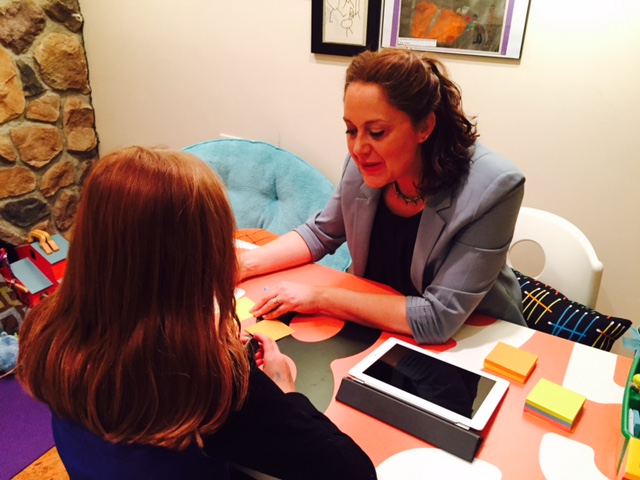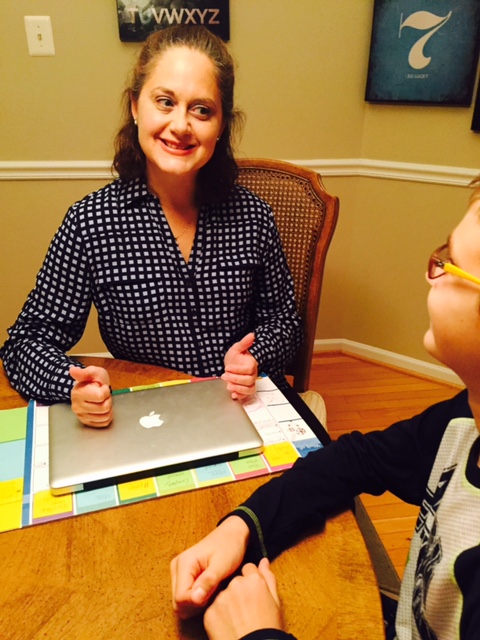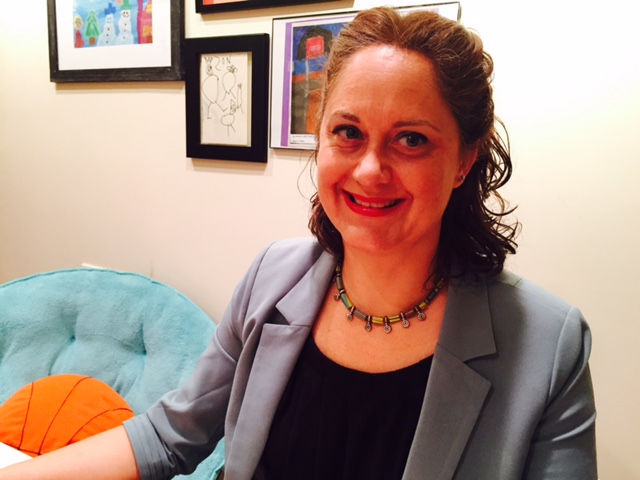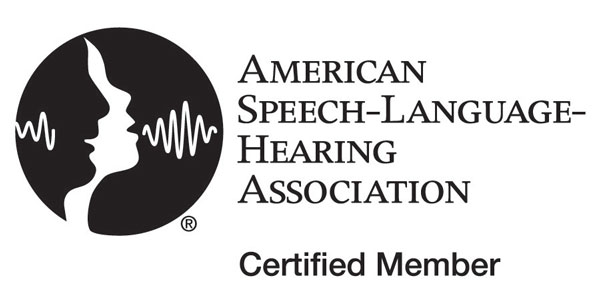Kim Hughes is a seasoned pediatric speech-language pathologist who also has experience helping children and adults with ADHD and executive function needs.
I have a diverse background as a pediatric speech-language pathologist and ADHD/executive function coach. For fifteen years, I worked at a variety of K-12 schools for students with learning challenges and private practice clinics. In those settings, I addressed the various needs of children and adolescents with language-based learning disabilities, Attention Deficit Hyperactivity Disorder (ADHD), and Asperger’s Syndrome Disorder (ASD).
I also have experience working with students who are more typical learners to address language-based issues such as reading and writing, study/memory strategies, project and time management, and problem solving. My experience has allowed me to help students build their self-esteem, prepare for college, understand their distinctive learning styles and develop useful study strategies, and self-advocate.
I believe in working collaboratively with occupational and physical therapists, psychologists, social workers, teachers, and families to fully meet the needs of the individual student as needed.
How I Teach
I teach collaboratively with connection and conviction.
First and foremost, I attempt to raise the self-esteem of a child while also addressing her learning needs. I show my students respect and that they are somebody special despite any challenges they may face. I acknowledge their unique talents and personalities while sincerely connecting with them because I want to know who they really are and what is at their core. I ask them what they like to do so I can incorporate their interests into our conversations, examples, and lesson plans. It shows them I respect and value them as an individual.
I work with my students to help them identify and understand their learning styles and then incorporate them into multimodal activities. I am flexible because each student learns differently so I must respond in kind. For example, if they fidget or need movement, I give them a variety of materials to help them stay focused. If they need to get up and walk around or sit on the floor, I give them the freedom to explore how they can best complete their work. I support and acknowledge their diversity of talents, learning styles, and academic needs. I thoroughly enjoy and value collaborating with other professionals to reinforce the use of effective strategies when they or I discover specific ways to help each student succeed.
When the situation requires it, I am silly or dramatic to keep their attention. My enthusiasm for learning abounds. Recently, a teacher remarked to me that I make everything seem exciting. “Everything is exciting!” And, truly in my eyes, it is. My enthusiasm is difficult to ignore.
If I see an unmet need, I utilize my visionary spirit to create a program or activity. For example, I saw a need to address self-esteem among girls with learning disabilities so I approached the middle school counselor at Kingsbury Day School to team up and develop a curriculum for “Girl Power.” Being collaborative not only serves the student, but it is a unique opportunity to learn tricks-of-the-trade from other experts. Because I have co-taught and consulted with a variety of experts, I am able to draw upon their best practices. Consequently, now I frequently incorporate psychological and occupational therapy strategies to address self-regulation, sensory integration, anxiety, and behavior. Being an ADHD/Executive Function Coach and a Speech-Language Therapist has taught me how to help my students learn through discovery so they can begin to internalize and self-monitor.
Why I Teach
I teach because I love to learn.
My life philosophy is that every minute of every day is a potential moment to learn and gain insight into both small and great things if we are mindful. I look at my students with that same perspective. They may be learning from me, but I am gaining so much more by connecting with them and teaching to their particular needs while taking into consideration their individual talents and interests. I live for teachable moments, and they are everywhere!
Like Rita Pierson, I believe everyone needs a cheerleader, a coach, an advocate, and a “champion.” I never give up on my students--no matter what. They know that I am tirelessly persistent on their behalf. I challenge them to be brave and reach deep down inside to pull out their best. But my tenacity does not stop there. If they need more than what I can provide, I connect with the right professionals who can meet their needs. I fight relentlessly to get them the necessary accommodations or services so they will feel fully supported.
How I Assess
I appraise quantitatively, anecdotally, and holistically.
To evaluate how a student is learning, I use traditional formal and informal measures. However, it is also important to teach kids how to self-assess, which takes modeling, lots and lots of guided practice, and feedback. This process must become fluent first so it can eventually become automatic. I train my students how to see the “big picture” so they can generalize across the curriculum and into real life. We celebrate big and small successes. I always end a session by telling them what they did well that day so we end on a positive note despite the struggles we may have encountered.
What I Teach
Beyond speech and language skills, beyond reading and writing, beyond pragmatics and executive function skills, I teach self-advocacy, self-esteem, and perseverance.
It is extremely important for students develop their metacognitive skills to recognize what they do and do not know and when and how to get support. When students do not accept their weaknesses, it can chip away at their self-esteem; however, they are so much more empowered when they independently seek out help. Instead of hiding, which devastates one’s self-concept, a person can learn to shine despite his challenges. Being brave requires a strong commitment to self, which cannot be attained unless one perseveres through difficult challenges. In overcoming challenges, people further develop their self-esteem and the cycle of empowerment naturally reinforces itself. I teach my students not to give up on themselves because I will not give up on them.







